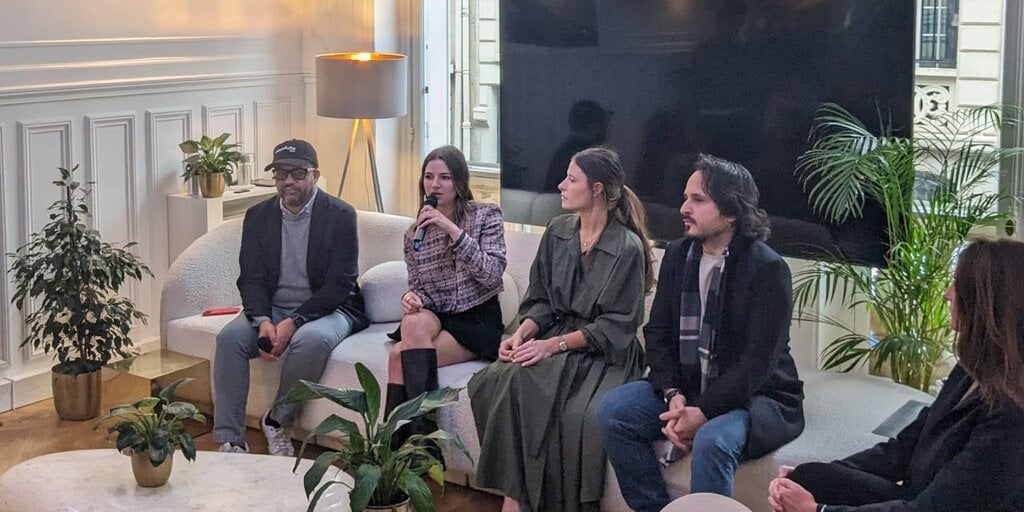The metaverse needs to become a “rich, fulfilling and beautiful” place to be, said Serontonin CEO Amanda Cassett—and luxury brands are well-placed to make that happen.
Speaking on a panel discussion at Decrypt and Rug Radio’s R HAUS event in Paris, Cassett said that the “parents” of the Web3 industry were technology and finance. “What got us here won’t get us there,” she said, referring to Web3’s predecessors, “and luxury and fashion has been making our industry beautiful.”
The reason that Meta’s metaverse has yet to gain traction, she said, is that, “It doesn’t look good. It’s not sensory rich, it’s not lush and textured.”
After renaming itself in late 2021 to reflect its keen interest in building the metaverse, the Silicon Valley company saw a lukewarm reception for its offering. By 2023, it began to pivot towards artificial intelligence and augmented reality.
“What I’m excited about are the people that are interested in the intersection of fashion, luxury and Web3 coming in and creating experiences that are not only digital, but rich and fulfilling and beautiful,” Cassett added.
Web3 also provides an opportunity for luxury brands to forge deeper connections with their consumers, through crypto wallet analytics, said Absolute Labs CEO Samir Addamine. Once a brand has identified customers’ wallets, “you look at their buying power, you look at their portfolio, you get all of that,” he said. “And then you evaluate an addressable market.”
Morgan Evans, Manager of Gaming and Web3 at Tommy Hilfiger, said that wallets enable fashion brands to track their interactions with consumers, “whether it’s at events, or whether it’s literally physical products.” Through those interactions, he said, the brands can, “find our real, true loyal fans, and we can actually give back to them. That’s the plan: How do we make them valued? How do we make their time with the brand much more exciting?”
L-R: Samir Addamine, CEO, Absolute Labs, Amanda Cassatt, CEO, Serotonin, Megan Kaspar, Red DAO, Pëllumb Gurra, Lead Designer, Rolls Royce, Morgan Evans, Tommy Hilfiger, Quinn Button, Ph.D., COO, Dastan. Image: Decrypt
Cassett highlighted the intersection of digital luxury fashion with the real world—pointing to her own NFC chip-enabled jacket as an example.
“Tap your phone against my wrist, you can see the name of the piece and where to get it,” she said. She added that people are bringing the online world into the physical world. “You see this aesthetically; we’re seeing more fashion that looks like a video game,” she said, adding that virtual reality technology such as the Apple Vision Pro enables “gamifying actual lived reality, both from a gameplay perspective and from an aesthetic perspective.”
Pëllumb Gurra, Lead Designer at Rolls-Royce, pondered the question of how digital luxury goods can acquire the patina that distinguishes real-world products. “What gives physical luxury goods their charm and their elegance in large part is the fact that they develop a patina, in large part thanks to the quality of the materials.”
He argued that NFTs and blockchain technology could provide a means to enable digital goods to acquire that history in the metaverse, meaning that they could “age gracefully with the customer, and the customer then passes them on to the next generation.”
Edited by Stacy Elliott.
Stay on top of crypto news, get daily updates in your inbox.
Source: https://decrypt.co/218509/serotonin-ceo-luxury-brands-metaverse


